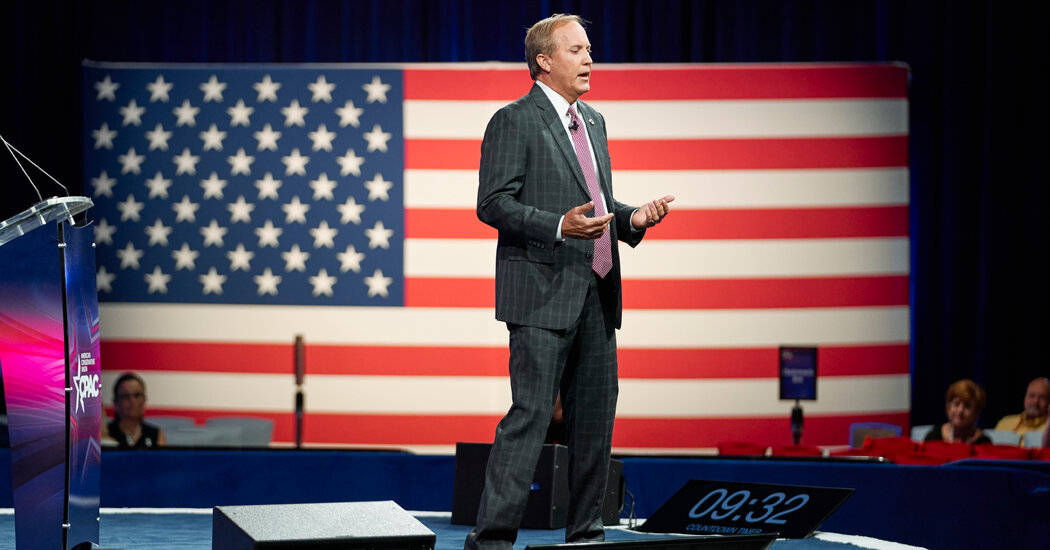Paxton, a former state representative who cultivated the conservative base of the Republican Party, was first elected attorney general in 2014. He vowed to fight the Affordable Care Act and defend the voter identification law in Texas.
But he has been dogged almost all of his time as Attorney General by allegations of misconduct, including a 2015 criminal charge for securities fraud. The charges stem from allegations that Mr Paxton failed to register as a representative of investment advisers and misled investors through them. encouraging them to invest in a company, but not telling them that he would be paid by the company. The case has yet to go to trial.
Last year, many of Paxton’s top employees, staunch conservatives themselves, made whistleblowers, accusing him of bribery, abuse of power and other possible criminal acts in connection with an Austin real estate investor. Those allegations, directed at the FBI, were the start of a federal investigation that still hangs over Mr. Paxton’s head. In both cases, he has denied doing anything.
Still, Mr. Paxton won the Republican primary last month, handily beating the Deputy Commissioner, George P. Bush, a member of the political dynasty. He did that in part by playing Texas politics correctly, which has been his great talent.
Paxton joined Mr. Trump in an effort to undo the results of the 2020 election, even going so far as to sue states where Mr. Trump had lost for fraud. Paxton appeared with Mr. Trump in Washington on Jan. 6, 2021, at a rally that drew thousands, some of whom stormed the U.S. Capitol. Mr. Trump backed Mr. Paxton last year and helped him past his scandals and through the Republican primary.
Paxton has echoed the former president in a different way: by attacking tech companies. In 2020, Mr. Paxton’s office, along with nine other states, filed an antitrust lawsuit against Google. The lawsuit alleged that the internet giant had abused its control over the opaque system that displays online advertisements.
After the January 6 riots, Mr. Paxton not only demanded research to Twitter, but also to Amazon, Apple, Facebook and Google, asking for details about the content moderation practices.

